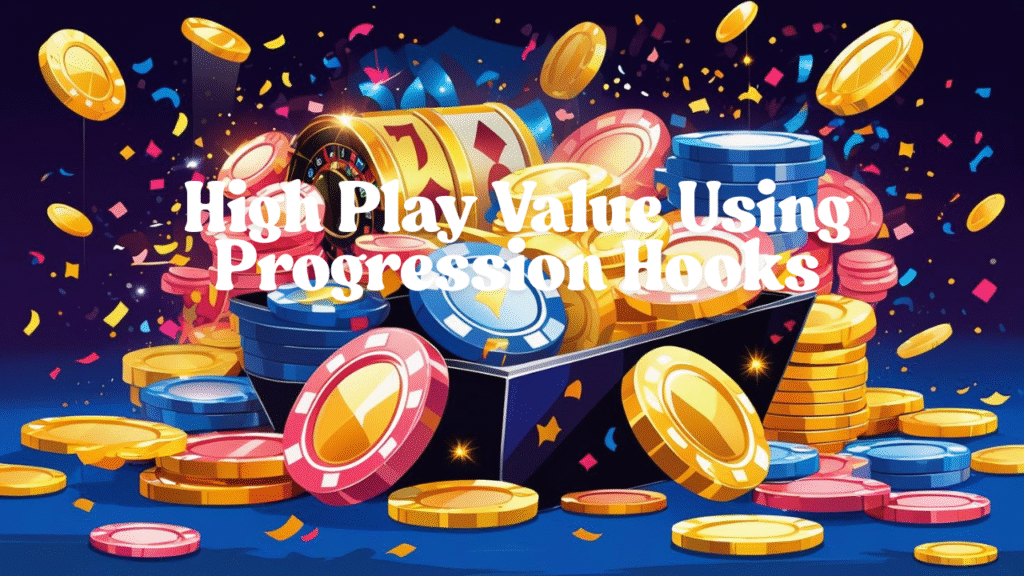Games Good Games: In the digital first world of today, the term “games” can refer to anything from expansive narrative-driven adventures to hyper-casual mobile applications.

When we talk of “games good,” nevertheless, we are talking to a particular subset—games that are carefully crafted, mentally stimulating, emotionally poignant, and socially beneficial. This paper investigates how these excellent games are changing not only the gaming sector but also people’s opinions, knowledge, and interaction style. Having more than 10 years of knowledge in the gaming industry, I will guide you in spotting, appreciating, and using quality games—as well as explain why the term “good” is more relevant than ever.
From Distraction to Development: The Evolution of Games
Over the past two decades, gaming has changed fundamentally. While today’s good games offer complex stories, immersive technologies, and even instructional value, early arcade-style games offered bursts of entertainment with little depth. Good games increase our potential, whether it is the complex world-building of The Legend of Lanka, the emotionally poignant story of Life is Strange, or the cognitive challenges in The Witness. They serve much more than only entertainment value.
Conscious design decisions that give user experience, emotional involvement, and intellectual stimulation top priority will help to explain this development rather than it being accidental. The change points to a cultural and technological development of games from throwaway distractions into transforming instruments.
Seven Ways Great Games Add Actual Value
1. Cognitive Development and Mental Excitation
Good games sometimes have strategic planning, puzzles, and decision-making requiring careful thought and problem-solving. Portal 2; Civilization VI; Return of the Obra Dinn tests the brain and increases logical ability, memory, and spatial awareness.
2. Emotional Invagement and Development of Empathy
Complex emotions are evoked in narrative-driven games like Firewatch, Journey, Brothers: A Tale of Two Sons, or Travel. They set players in circumstances that foster emotional intelligence, critical thinking, and empathy—qualities necessary for both personal and professional life.
3. Teamwork and Social Interaction
StarCraft, Valorant, and Final Fantasy XIV among multiplayer games inspire communication, strategic coordination, and conflict resolution. These games replicate settings where cooperation is crucial—skills directly applicable to actual cooperation.

4. World-Building and Creative Expression
Players of games include Minecraft, Dreams, and The Sims 4 have tools to create, develop, and invent. Important elements in design thinking and artistic development—experimentation, iteration, and vision—these creative avenues inspire.
Good games can offer a mental respite and psychological well-being release from stress. Calming games include Stardew Valley, ABZÛ, and Spiritfarer provide calm surroundings and repeating, comforting gameplay cycles meant to help with emotional healing.
6. Development of Skills and Improvement of Learning
Games may teach without dulling the gamer from aviation simulations to historical role-playing. Learning is fun and absorbing when titles like Assassin’s Creed Origins (Discovery Mode) or Kerbal Space Program combine factual knowledge with engaging gameplay.

7. Positive Behavioral Reinforcement
Games by their very nature respect perseverance, effort, and progress. This model fits very nicely with behavioral psychology ideas, hence effective games are a useful tool for younger and older audiences both to strengthen consistency, goal-setting, and patience.
Methodically: How to Find and Select Appropriate Games
decide your goal.
Why are you playing, then? For learning, leisure, challenge, or social connection? Clearing this will enable you to choose games fit for your objectives.
investigate reputable titles.
Evaluate games for depth, creativity, and mechanics rather than only popularity using sites as Metacritical, Steam reviews, and well chosen YouTube reviews.
review developer intent.
Good design fuels good games. Find out if the creators emphasize narrative, emotional depth, or strategic complexity—qualities of well created games.
Start Small and Scale
Start with really well regarded independent games or narrative experiences. Often they provide excellence without the excessive complexity of open-world or big multiplayer games.
consider your experience.
Ask yourself, following gameplay, “What did I learn? How did it affect me? Would I engage in this once more? Good games create an impact much beyond simple entertainment.
In-depth investigation: What exactly makes a game really “good”?
The phrase “good game” is arbitrary but usually derived from a few fundamental design principles:
Games that lead the player through challenges and reward expertise without depending on exploitative mechanics aim at guiding them.
Good games design pays in a way that reflects real-life drive, therefore encouraging ongoing development and effort.
Story Impact: Stories of importance. From moral conundrums to character development, a successful game delivers a narrative that connects outside of the screen.
The perfect union of challenge, reward, and tempo is mechanical balance. Good games keep the player interested without making one frustrated or bored.
Games reflecting society, history, or current events often get the “good” designation from helping to spark more general dialogues.
FAQs: Games Good Games
Are indie games more likely than big titles to be “good”?
A: Not always, however indie creators frequently go creatively and produce emotionally rich, unique experiences.
Are “good games” mobile games?
A: Indeed, titles like Monument Valley, Alto’s Odyssey, and Mini Metro show how well mobile devices can provide creative richness and quality of gameplay.
How long ought a decent game to last?
A: That relies on the genre. Good games must be relevant rather than drawn out lengthwise. If a 3-hour game is well-executed, its influence can be really noteworthy.
Is always educational nature of a good game necessary?
A: Though they sometimes have instructional worth. Good games transcend simple enjoyment to include historical background, critical thinking, emotional development.
Can teenagers and children profit from decent games?
A: Right away. Age-appropriate good games help youngsters grow in empathy, reasoning, and creativity under the correct direction.
In essence, redefining games as instruments for development
The discussion of gaming has evolved and fairly so. When chosen with purpose, “games good games” are portals to personal development, intellectual growth, and social connection rather than only amusement.

Parents, teachers, players, and business leaders should all welcome the good impact of great games. Understanding their deeper potential will help us to transform gaming from a hobby to a deliberate activity that sharpens the mind, calms the soul, and links all people.
Let this remind you: the best games don’t merely occupy your hours. They improve your quality of living.





